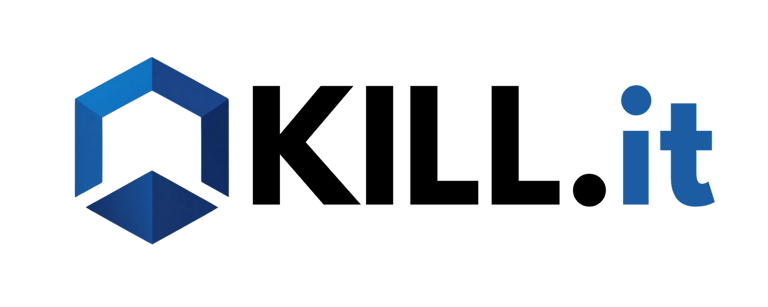Screen-free AI: OpenAI and Joni Ives Redefine Consumer Tech
OpenAI recently unveiled what could be the most transformative consumer technology move since the iPhone, a whopping $6.5 billion acquisition of Joni Ives' startup and the plan for a groundbreaking screen-free AI device, setting a goal to ship an unprecedented 100 million units at launch...
KILL.it Agency
6/8/20252 min read


Screen-free AI: OpenAI and Joni Ives Redefine Consumer Tech
OpenAI recently unveiled what could be the most transformative consumer technology move since the iPhone, a whopping $6.5 billion acquisition of Joni Ives' startup and the plan for a groundbreaking screen-free AI device, setting a goal to ship an unprecedented 100 million units at launch. This announcement wasn't just a blip on the radar; it has the potential to change how we interact with technology in our everyday lives fundamentally.
The Genesis of a Game-Changing Alliance
The fusion of Sam Altman and Joni Ives (legends in their respective fields) heralds a seismic shift in tech. Their partnership isn’t just about bringing two brilliant minds together; it’s about reshaping how technology integrates into our lives with AI-first, screen-optional devices. Altman’s leadership at OpenAI has pushed AI boundaries, while Ives, post-Apple, has been brewing innovations at his new design firm, LoveFrom, which has been described as densely packed with talent unprecedented in the industry.
A New Kind of Tech Device
Delving into the details, the new AI-powered device from OpenAI is designed to be your third core device, sitting alongside your MacBook Pro and iPhone. What sets it apart? It's entirely screen-free, designed to make you use your phone less rather than more. This device isn't meant to replace your smartphone or to be worn like glasses but to be a new kind of companion that's aware of its surroundings—whether it sits on your desk or fits in your pocket.
Set for Success or Destined to Fail?
It's crucial to look at the surrounding AI device market to understand the mountain that OpenAI needs to climb. The tech landscape is littered with both successes and failures. Devices like the Humane AI pin, which went from hero to zero quickly due to functionality issues, overheating, and a high price tag, serve as a cautionary tale of how not to launch tech products. On the flip side, more seamlessly integrated AI like the Meta Ray-Ban smart glasses shows that adding AI to existing, familiar products can enhance user experiences without overhauling their concept of a device.
The Road Ahead: Challenges and Opportunities
Looking forward, OpenAI's ambitious project comes with its fair share of challenges. The AI device market is still volatile, with high-profile failures illustrating the pitfalls of over-promising and under-delivering. Any successful new device will need to seamlessly integrate into users' lives, offer tangible, everyday benefits, and perhaps most critically, respect user privacy while ensuring data security.
Shifting the Paradigm of Interaction
What we’re witnessing might just be the dawn of a new era in technology—an era where AI devices become as unobtrusive yet as essential as the smartphones were when they first redefined connectivity. By steering away from traditional screens and focusing on user-centric design, OpenAI and Joni Ives might be crafting the blueprint for the next big leap in technology consumption.
Are you eager to find out how AI can transform your business operations or customer interactions? KILL.it Agency specialises in leveraging AI to streamline business processes, enhance customer experiences, and boost operational efficiency.
Contact us for a free consultation to explore tailored AI solutions that can drive your business forward. Reach out today at info@kill-it.agency.
